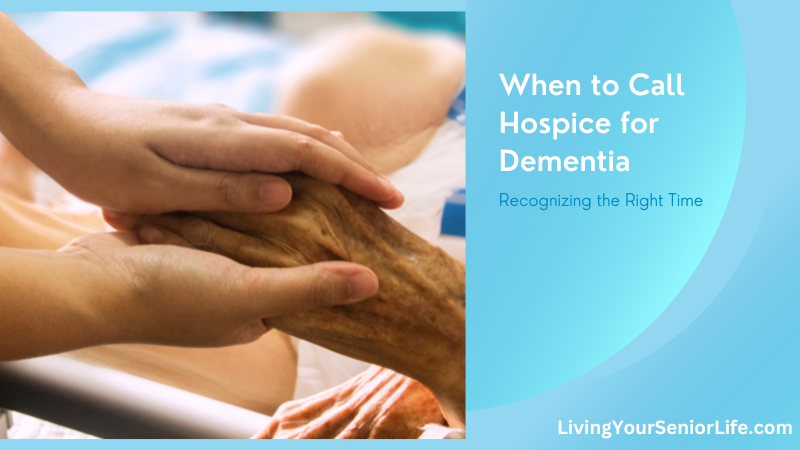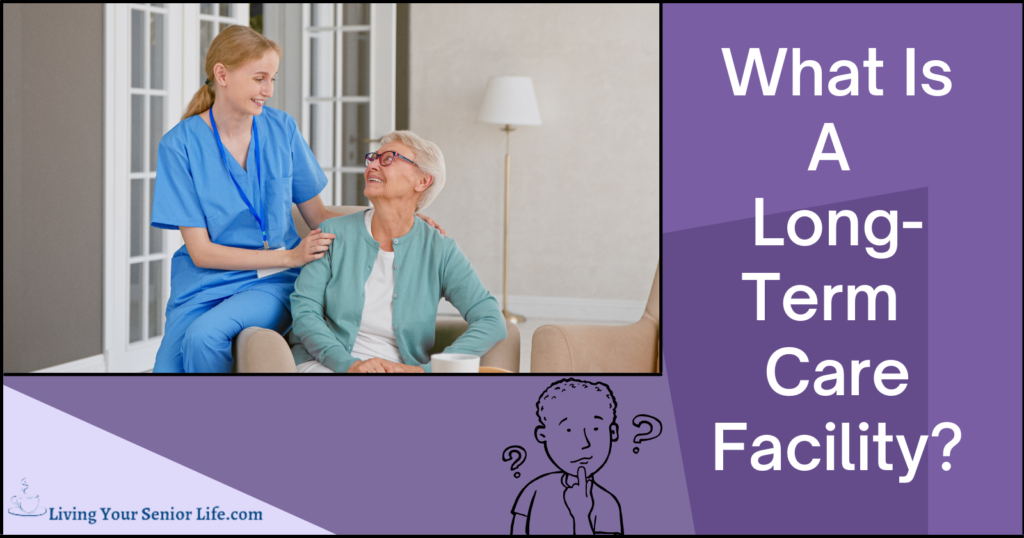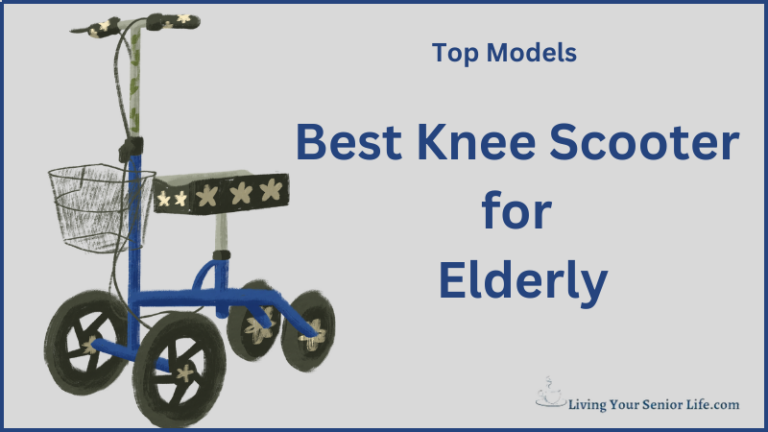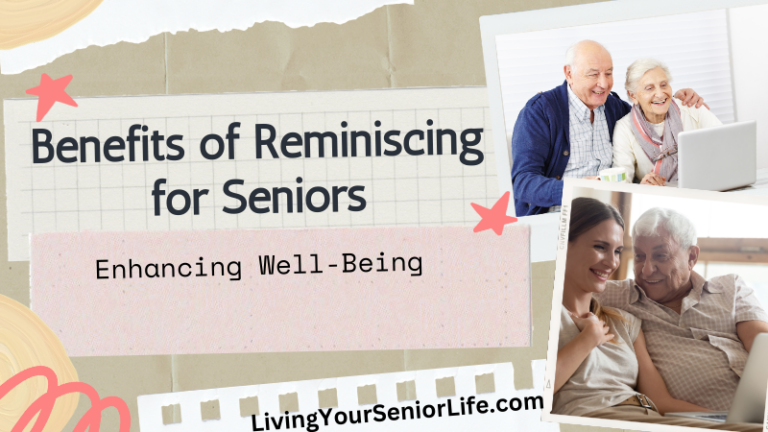When considering the transition of elderly people into care homes or assisted living facilities, the autonomy and quality of life of older adults are paramount. It’s natural for family members to sometimes worry that an elderly relative may not be safe or well-cared for in their own home, especially if their health or mental faculties are declining. However, the law is clear in answering the question, “Can an elderly person be forced into care?” An elderly individual cannot be forced into care and out of their own home without their consent unless specific legal criteria are met.
Legal interventions may occur only when the person lacks the capacity to make sound decisions for themselves, which is determined by a professional assessment and, if necessary, a decision by a probate court or the appointment of a guardian ad litem.
For those concerned about the safety of others or facing an emergency situation, understanding when it is legal and ethical to step in is essential. If you find yourself in this difficult situation, it is important to seek guidance and support, potentially involving social workers and elder care lawyers, who can help navigate the challenging landscape of elder care and ensure that the best interests of the individual are protected.
Key Takeaways:
- Elderly people have the right to make their own decisions regarding care unless legally declared unable.
- Family members should work with professionals to ensure the best care options while respecting the elderly person’s autonomy.
- Legal advice and social services may be sought when the individual’s ability to make sound decisions is in question.
In This Guide
When caring for aging parents or an elderly relative, understanding the complexities involved with elderly people potentially moving into care homes is crucial. As you navigate through the maze of decisions and legalities, this guide aims to empower family members and elderly individuals alike with the knowledge to make sound decisions for their golden years.
Daily tasks may become challenging, necessitating a conversation about the right type of care. Whether it’s in-home care, an assisted living community, or residential care, the quality of life and best interests of the individual should always be forefront.
You will learn about the role of elder law attorneys in ensuring the elderly patient can make their own medical decisions, and when a guardian ad litem might step in. Social workers and geriatric social workers, meanwhile, often assess whether older adults can remain in their own home or if moving is the best option, considering both care needs and personal health.
Legal frameworks such as the Mental Capacity Act and the Mental Health Act offer protective measures to ensure elderly individuals are not unjustly compelled into care. You will read about situations where a probate court or an enduring guardian might be necessary to safeguard elderly care decisions.
If social services force the issue, it’s usually because elderly people have a significant problem with cognitive impairment or can no longer safely live alone. However, this is often the last resort.
Throughout this guide, we’ll explore the various facets of elder care, aiming to provide you with clarity, knowledge, and support as you determine the next step in providing care for an elderly friend or family member.
Video: Can An Elderly Person Be Forced Into Care Legally?
Why might someone need to go into a care home?
When considering a care home, family members and social workers often focus on enhancing the quality of life for elderly people who may no longer safely manage in their own home. Care homes offer a supportive environment where older adults can receive the type of care that meets their care needs, especially when daily tasks become challenging.
For some aging parents, residential care or an assisted living facility might be the best option when they’re unable to make sound decisions about their own medical decisions due to cognitive decline. If an elderly relative demonstrates signs of cognitive impairment such as Alzheimer’s disease, ensuring their safety and proper medical care might necessitate a move to a place where round-the-clock care is available.
When elderly people can’t live independently and family caregivers are unable to provide needed support, a long-term care facility might be the only way to provide peace of mind. Elder law attorneys and geriatric social workers often aid in evaluating whether an individual can remain at home with support, such as in-home care or respite care, or if a move to a senior living community is the next step.
Adult children and elder care lawyers may need to work with the local authority or probate court if the elderly individual lacks the capacity to consent, involving roles like guardian ad litem or enduring guardian. Acknowledging the elderly person’s care as a significant problem, action must focus on the best interests of the individual, ensuring their dignity during their senior years is preserved.
Understanding Elder Care Needs

When considering elder care, it’s essential to evaluate the unique health and support needs of older adults, including their physical, cognitive, and mobility capacities. Ensuring the well-being and quality of life of elderly people often entails collaboration between family members, social workers, and elder law attorneys to identify the best care solutions.
Health Considerations
Elderly individuals may face a range of medical needs that can affect their ability to live independently in their own home. Evaluating a person’s health involves assessing their daily tasks and their potential need for medical care, long-term care facilities, or in-home care options. This is not only a significant problem in ensuring appropriate type of care, but also in maintaining dignity and the ability for older people to make their own decisions regarding their care.
Cognitive Impairment and Dementia
Cognitive impairment and conditions like Alzheimer’s disease can impact an elderly person’s ability to make sound decisions or execute their own medical decisions. In such cases, a geriatric social worker, elder care lawyer, or guardian ad litem might step in to help coordinate care needs, especially when the individual’s mental faculties are in question. Deciding on an assisted living community or residential care could become necessary to ensure the safety of others and provide peace of mind for family members.
Mobility Problems
Mobility problems in elderly people can drastically affect their independence. For those who have difficulties moving around, even with a little help, transitioning to a care home or senior living community may be the only way to ensure they receive the appropriate level of care. However, for many aging parents and senior citizens, remaining in the familiar surroundings of their own home for as long as possible is a key aspect of enjoying their golden years.
Family members and social workers often have to work closely to maintain a good relationship and weigh options like respite care or adult protective services, depending on the severity of the mobility concerns. Assessing whether it’s safer for an elderly relative to move to a new home or stay put is not only about daily tasks, but also about ensuring the best interests of the individual and providing the best care possible in their senior years.
How Can You Legally Force Someone Into a Nursing Home?
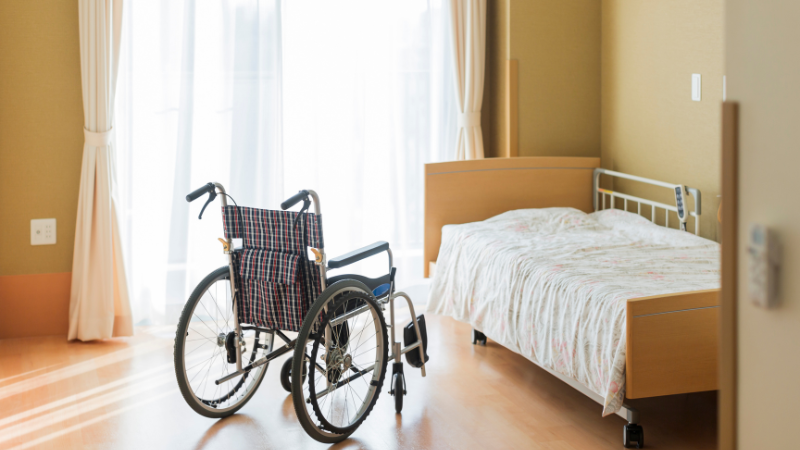
If you’re faced with the challenging decision to place an elderly relative into a long-term care facility, understanding the legal avenues is crucial. Forcing an elderly individual into a nursing home against their will is a serious matter and generally the last resort.
When elderly people can no longer manage daily tasks in their own home, and it impacts their quality of life, social workers or family members may consider residential care. However, elderly persons have the right to make their own decisions regarding their care unless they lack the capacity to make sound decisions due to a condition like Alzheimer’s disease or another form of cognitive impairment.
If an older adult is unable to live safely alone or with in-home care, and all other options have been explored, family caregivers or adult children might need to petition a probate court to appoint a conservator or guardian ad litem. This legal representative would then hold the authority to make medical and financial power of attorney decisions and could decide on the best option for the individual’s care needs—potentially a senior living community or assisted living facility.
Consulting an elder law attorney can provide peace of mind and ensure the best interests of the individual are represented, especially when family members are considering the next step. It’s a difficult situation, but with proper legal guidance and the individual’s mental faculties being considered, the primary caregiver can make the right decision for the person’s health and well-being.
Remember, taking this route requires evidence that the elderly patient cannot safely take care of themselves, and senior living is the only way to ensure their safety and access to medical care. The decision to seek legal recourse through the courts is significant and should be made with the help of medical professionals, senior living advisors, and legal experts who specialize in elderly care.
Legal Aspects of Elder Care
When considering the care of elderly people, understanding the legalities ensures their best interests are safeguarded. Several legal tools and roles come into play to help them maintain their quality of life and autonomy.
Power of Attorney
Power of attorney is a legal document that allows an elderly individual to appoint an attorney or a trusted family member to make decisions on their behalf, should they lose the mental capacity to do so. There are two main types:
- Financial Power of Attorney: This permits a designated person to handle financial affairs, such as managing bank accounts and paying bills.
- Health Care Power of Attorney: This gives an individual the authority to make medical decisions on behalf of the senior citizen if they can no longer express their own medical decisions.
Guardianship and Conservatorship
Guardianship and conservatorship are legal relationships established by a probate court when an older adult is unable to make sound decisions due to loss of mental faculties.
- Guardianship: Involves the appointment of a guardian by the court to make personal decisions for the elderly individual, like those related to living arrangements and health care.
- Conservatorship: A conservator is responsible for managing the financial affairs of the senior, ensuring their medical needs and care needs are met through proper use of their assets.
Legal Rights and Capacity
Every elderly person has fundamental legal rights and the capacity to make their own decisions must be protected. Legal rights include:
- Living in their own home or a new home of their choice.
- Access to high-quality residential care or in-home care.
- Making own decisions about medical and personal matters as long as they have the mental capacity.
When there’s concern over an elderly relative’s ability to make decisions, a capacity assessment is often conducted by medical professionals. If mental incapacity is identified, it could lead to the involvement of social services or the need for guardianship or conservatorship arrangements, always aiming for the best interests of the individual.
Understanding these provisions can help you support your aging parents or other older adults in your life to ensure that their golden years are managed with respect, care, and dignity.
Healthcare and Emergencies
When an elderly individual faces a medical crisis or healthcare emergency, the priority is to ensure their safety and well-being. This can often entail hospitalization or intervention by healthcare professionals to provide the necessary medical care.
Emergency Situations and Hospitalization
During emergency situations, immediate hospital care is crucial for safeguarding an elderly person’s health. Family members and social workers may need to act swiftly if an older adult is unable to make sound decisions due to cognitive impairment or acute medical issues. In extreme cases where the safety of others may be at risk, local authorities or medical professionals might have to intervene.
- Hospitalization: An essential response to serious health events, ensuring access to full medical needs.
- Aftercare: Post-hospital care options, including in-home care, respite care, or a senior living community.
Role of Physicians and Professional Care
Physicians and caregiving professionals play a pivotal role in assessing an elderly patient’s capacity to return home or need for alternative care arrangements. They focus on enhancing the person’s health and quality of life by providing medical evaluations and recommendations on the best type of care. In cases where elderly people cannot make their own medical decisions, a guardian ad litem or enduring guardian may be appointed, sometimes by a probate court, to make decisions aligned with the best interests of the individual.
Primary Caregiver Responsibilities:
- Daily Tasks: Assistance with personal care and household tasks.
- Health Monitoring: Regular checks on health status and medication management.
- Care Planning: Collaboration with health care professionals to determine an appropriate level of care.
Decisions regarding long-term care, such as moving to an assisted living facility or a long-term care facility, are often guided by physicians in tandem with family members, elder care lawyers, and geriatric social workers. These professionals aim to ensure that the next step maintains or improves the overall health and quality of life for the older people involved.
Family Dynamics and Decision-Making

It’s a significant problem for many adult children and family caregivers to decide on the best option for their aging parents or other senior relatives. They must navigate through a maze of considerations including the person’s health, the type of care required, and the potential impact on the elderly person’s ability to make their own medical decisions. Collaboration with elder law attorneys, geriatric social workers, and medical professionals ensures that every angle is considered. The decision-making process often includes discussing the possibility of in-home care, which can provide elderly individuals with support while allowing them to stay in the comfort of their own home for as long as possible, offering peace of mind to everyone involved.
When determining the best care solution for an older family member, recognizing the delicate interplay of family dynamics and decision-making processes is crucial. Families often confront challenging decisions about the type of care for elderly individuals, such as if staying at home, moving into an assisted living facility, or considering a long-term care facility is in the best interest of their relative.
When aging parents are resistant to receiving care or moving from their own home, family members should consider all alternatives, including home modifications, in-home care, and respite care to maintain the parent’s independence. Discussions about payment options, the level of care needed, and the impact on the family caregivers should be handled sensitively to find the best solution while respecting the elderly person’s preferences.
Roles of Family Caregivers
Family caregivers play a pivotal role in the lives of older adults, often being central in managing daily tasks and medical care to ensure the senior citizen’s quality of life. In some situations, adult children find themselves in the primary caregiver role, providing in-home care or coordinating with social workers and health care professionals to meet their aging parents’ care needs. It is essential that family members understand their responsibilities, ranging from personal care to managing financial affairs, to provide the best care for their elderly parents.
Involving The Elder in Decisions
Autonomy is fundamental, and elderly people have the right to make their own decisions regarding their care, assuming they have the mental faculties to do so. Older people should be actively involved in discussions about moving to a new home, such as a senior living community or getting respite care. In cases where the person’s health allows it, the inclusion of the elder in making sound decisions can not only ensure that their best interests are considered but also provide peace of mind for the entire family. However, if cognitive impairment is significant, a probate court or an elder law attorney may appoint a guardian ad litem or an enduring guardian to make decisions in the elderly patient’s best interests.
They can help determine the best option and provide peace of mind that you are taking the right steps.
Frequently Asked Questions
Navigating the intricacies of care for elderly individuals can be complex, particularly when it comes to their legal rights and the responsibilities of family members. The following questions and answers will guide you through understanding the delicate legal landscape surrounding elder care.
What are the legal implications for family members when an elderly person lives alone and refuses care?
When elderly people choose to live alone and refuse care, family members may feel concerned for their relative’s safety and quality of life. Legally, unless the individual is deemed incompetent by a probate court or lacks the ability to make sound decisions, they have the right to make their own decisions about their care.
Under what circumstances can social services intervene to place an elderly individual in a nursing home?
Social services may intervene if there is clear evidence of elder abuse or neglect, significant health and safety risks, or if the elderly person lacks the mental capacity to make their own medical decisions. In such cases, a guardian ad litem may be appointed by the court to represent the best interests of the elderly individual.
Is it within a doctor’s legal rights to recommend or arrange nursing home care against a patient’s will?
Doctors can recommend a move to a long-term care facility if they believe it is in the best interests of the individual’s health. However, arranging such a move against an elderly patient’s will is only legal if the patient lacks the mental faculties to make their own medical decisions, as confirmed by medical and legal evaluations.
What authority does a power of attorney grant regarding decisions about placing an elder into a nursing home?
A power of attorney allows the designated person to make decisions on behalf of the elderly relative, including decisions about long-term care. However, the extent of this authority depends on the specific terms outlined in the power of attorney document and is subject to the person’s health and capacity to make decisions.
What About A Dementia Patient Who Is Unwilling To Move To An Assisted Living Facilities?
In cases where an elderly individual with cognitive impairment is resistant to moving into an assisted living facility, families should consult with an elder law attorney for options. Working with a geriatric social worker and seeking the advice of medical professionals can also ensure that any transition is handled with the patient’s interests at heart.
Conclusion
In conclusion, the decision to force an elderly person into care is a complex and sensitive matter that requires careful consideration of legal, ethical, and practical implications. While there are legal provisions for ensuring the safety and well-being of elderly individuals, it is crucial to approach such decisions with empathy, respect for autonomy, and a thorough understanding of the individual’s specific circumstances. Balancing the rights of the elderly with their best interests is essential in navigating this challenging issue.
Have you faced the question of whether or not to put someone into a care facility? What did you consider in the process? Please comment below.


